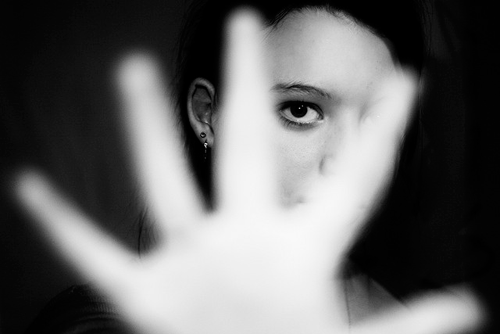 When Julia Child said “Never apologize,” she was addressing the tendency of cooks—often female cooks—to insist on the insufficiency of their creations. This isn’t the way I meant it to turn out. I hoped it would be spicier. I’m sorry about the frosting. It’s not as pretty as I thought it would be.
When Julia Child said “Never apologize,” she was addressing the tendency of cooks—often female cooks—to insist on the insufficiency of their creations. This isn’t the way I meant it to turn out. I hoped it would be spicier. I’m sorry about the frosting. It’s not as pretty as I thought it would be.
She thought these apologies had no place in learning—or in entertaining. You have to train to be a great chef, and your mayonnaise may not turn out right on the first try. It probably won’t. But you should not say you’re sorry, which implies doubt in yourself and your skills.
Two studies at the University of Waterloo in Ontario published in Psychological Science in 2010 concluded that women have a lower threshold for what they consider warrants an apology. And recently, a Pantene advertisement depicting women apologizing for behaviors that don’t require an apology thrust the question of gendered apologizing into mainstream conversations about feminism. (The ad has gotten millions of hits on YouTube.) If the relationship between shampoo and apologizing was not entirely clear, the ad’s argument was that women say “I’m sorry” more than men do.
Sometimes we apologize for what we do, and sometimes we apologize for what we think. To me, the two are related. If someone bumps into me and I apologize to him, I’m saying that I don’t deserve any space in the world. And if I apologize for my ideas, I’m saying that I don’t deserve to be heard.
I’ve been an English professor for six years—enough time to have asked myself what I should be teaching the next generation. Sometimes this is a difficult question to answer. But then there are moments when it becomes clear, and a particular need arises that asks to be addressed. One of these moments occurred in a class on English Renaissance drama.
I noticed that my female students were constantly apologizing for their ideas. They began their sentences with phrases like I probably don’t know what I’m talking about… and Sorry if this is totally off base… and This might be wrong… and Sorry if I haven’t thought this out enough… I started to count these apologies and found that I was tallying up 10 or more per class meeting. My female students spoke hesitantly and doubtfully about their ideas. They started out from a position that what they had to say was not interesting.
I knew that Julia Child would not approve of this. Ideas are like mayonnaise and may also need a few tries. So I said something. At the beginning of one class, before anyone had the chance to utter these phrases, I outlined my concern, encouraging my students to be aware that they were undercutting the validity of their intellectual contributions. Doubt—what the poet John Keats referred to as “negative capability,” or dwelling productively in uncertainty—is central to intellectual conversations and growth, but this is different from saying that your ideas are bad. My students nodded. We agreed that this is learned behavior, and that it can be unlearned.
During the class, several women started to apologize for their ideas and then stopped, laughed nervously, and began again. I joked that we should all put a quarter in a jar if we undercut what we were saying, but since that day we haven’t needed a jar. Now my students rarely begin their sentences with these apologies. Several have emailed me or talked to me outside of class about this issue, saying that they’re shocked by how often they’re tempted to use these phrases, but that now they feel armed to push back against them. If we don’t believe that what we say is valuable and valid, others certainly won’t.
This conversation was a first step in a new relationship with my students—not just my female students, but all of them, as feminism should be a male cause as well. We do not have to act in the ways we have been trained to act. This is how we help ourselves, and this is how we help our society.



